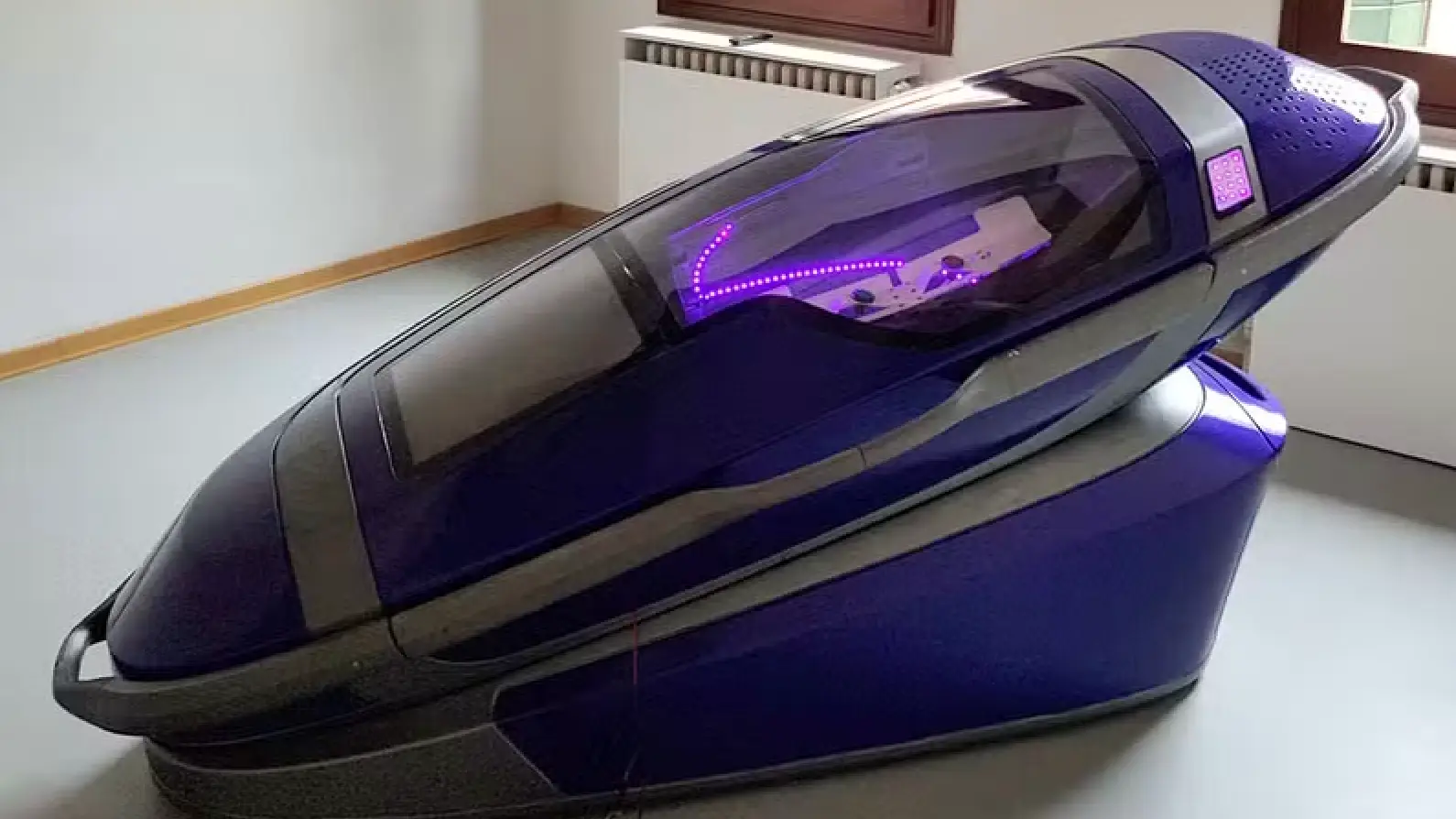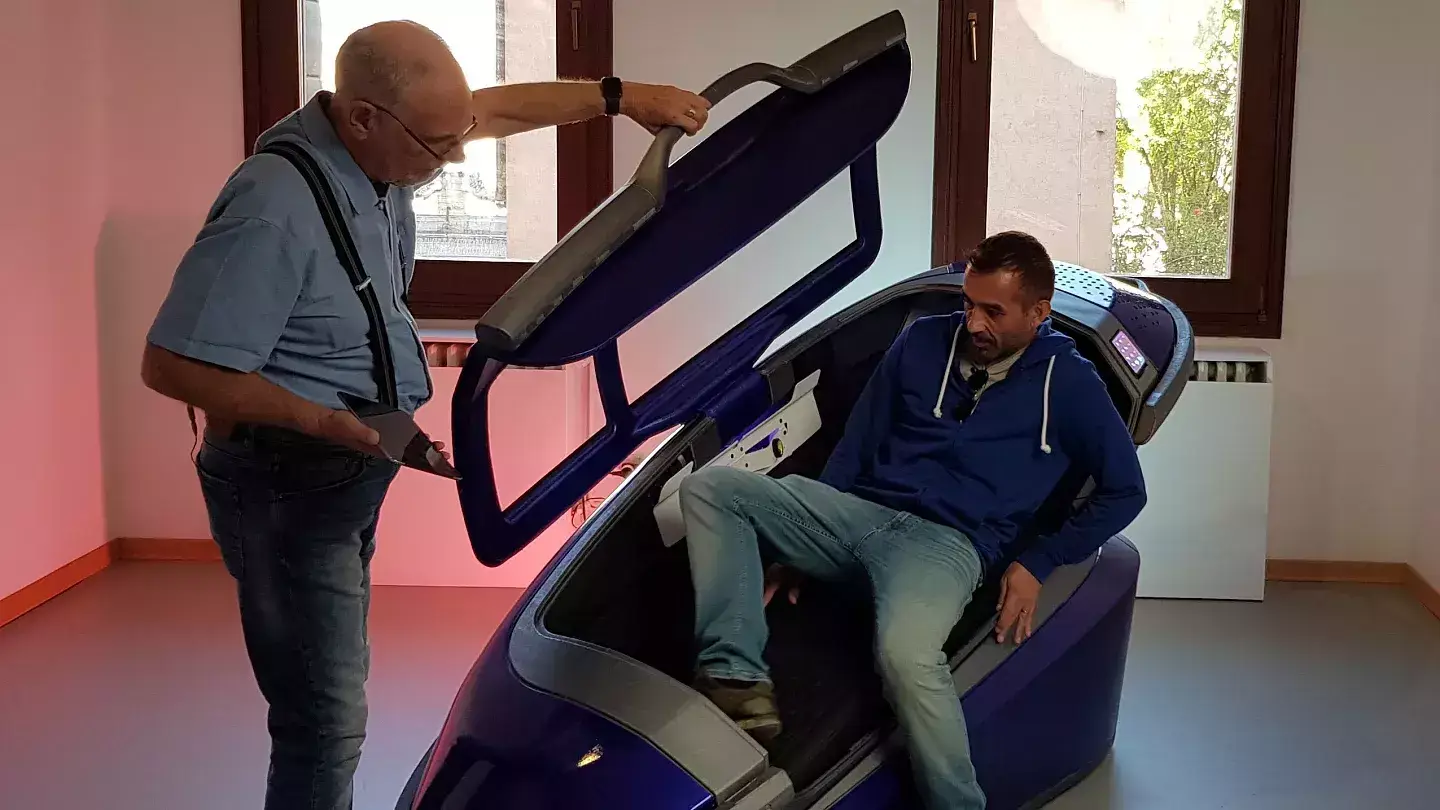
The inventor of a controversial device branded the 'Tesla of euthanasia' has outlined his plans to bring it to the UK amid a new assisted dying bill making its way to the House of Lords.
It comes after MPs at the House of Commons passed Kim Leadbeater’s Terminally Ill Adults (End of Life) Bill by a majority of 23 on Friday (20 June).
The bill will allow people in England and Wales to inject themselves with an approved substance to cause death if they have less than six months to live.
The terminally ill adults would need two doctors to sign off on the approval as well as a social worker panel before they are able to go ahead.
Advert
The Bill has now moved to the House of Lords for the next stage of approval.
Having already used his suicide invention - titled the 'Sarco' - and come under intense scrutiny after a woman was allegedly found with strangulation marks, now Dr Nitschke has expressed his hope to bring the device to the UK if the law becomes set in stone, explaining how he'd go about getting it approved.

How does the 'suicide pod' work?
Invented in 2012, Dr Nitschke's 3D-printed 'suicide pod' works by replacing the oxygen inside it with nitrogen, causing hypoxia (suffocation).
It comes with a self-operated button on the inside so that a person can end their life alone.
However, a camera is also fitted inside the Sarco pod which captures the person’s final moments, with the footage then handed to a coroner.
The device has had major backlash after the death of a woman who used it, but now it could be making its to the UK.
Dr Nitschke said as per the Times: “As soon as we know that the final legislation is in place, we’ll start enthusiastically pursuing the option of using the device in the UK.
“We’ll be looking to find UK-registered doctors to assist, and of course, someone who wants to use it and satisfies all of the requirements under the law.
"The doctors involved would know that this would attract attention and possible close scrutiny, which by and large most doctors aren’t enthusiastic about, so we’d have to find someone who’s a little crusading.”

What will happen if the 'suicide pod' comes to the UK?
Dr Nitschke explained the different functions that would be implemented if his suicide pod came to the UK.
He said: “If we were able to make use of the device available in the UK, there would be quite a few more applications, I imagine, because people want to die in their own home, or more importantly, be able to take the Sarco to some nice place in the UK rather than having to try and go to some strange country.”
Suicide pod controversy, strangulation mark accusations
The controversy surrounding Dr Nitschke's creation is still fresh in people’s minds after he attempted to bring the pod to Switzerland, where medically assisted deaths are legal, but euthanasia is not.
Last year, an unknown American woman, 64, died in a Swiss forest using the device.
However, police claimed the woman had been found with strangulation marks after initiating the death button herself.

Authorities launched an investigation last year, bringing people in for questioning, including Dr Florian Willet, the president of The Last Resort organisation.
Swiss authorities also confiscated the pod amid the investigation.
However, Dr Nitschke said the 47-year-old suffered a mental breakdown after his arrest and took his own life.
Willet was released in December, having been in pre-trial detention for 70 days and later died in Germany with the help of another organisation.
During the investigation, it was ruled out that the woman had been strangled.
If you’ve been affected by any of these issues and want to speak to someone in confidence, please don’t suffer alone. Call Samaritans for free on their anonymous 24-hour phone line on 116 123.
Topics: UK News, Health, Mental Health
